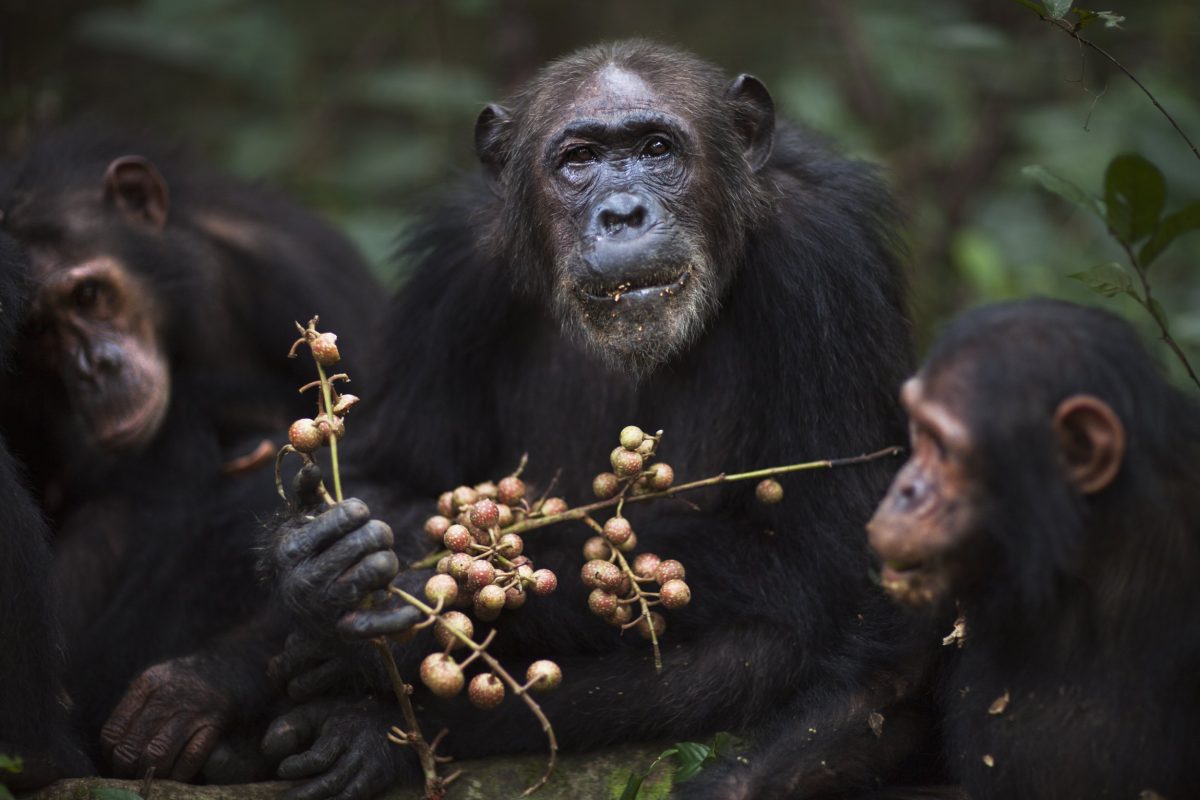Science
New Research Explores Our Ancient Attraction to Alcohol

Understanding why humans have a propensity for alcohol consumption has intrigued researchers for years. Recent findings lend credence to the “drunken monkey” theory, which suggests that our distant primate ancestors developed a preference for alcohol due to its presence in fermenting fruits millions of years ago. This theory was first introduced by Professor Robert Dudley in his 2014 book, “The Drunken Monkey: Why We Drink and Abuse Alcohol.”
Alcohol, while often viewed as an unnatural substance by modern standards, is actually prevalent in nature. According to Professor Dudley, the emergence of fruit-bearing plants around 100 million years ago played a significant role in this relationship. These plants evolved to attract animals by packaging their seeds within tasty, calorie-rich fruits. As these fruits ripen, yeast from the environment ferments the sugars they contain, producing alcohol.
Alcohol’s Role in Primate Diets
Research indicates that ripe fruits emit an “ethanol plume,” which can serve as a guide for primates navigating dense forests. Aleksey Maro, a primatologist and collaborator with Professor Dudley, explains, “When you’re making your way through a sea of green to find the few globs of calories hanging in the trees, even a small advantage can be very major.” This scent could help primates identify which trees are producing alcohol, as different species release varying chemical compounds during fermentation.
Initially, the drunken monkey theory faced skepticism. Many scientists believed that primates did not have a taste for alcohol or that they rarely consumed overripe fruit. However, as primatologists began observing primate behavior, evidence emerged of monkeys and apes indulging in fermented fruit. Dr. Kimberley Hockings, a chimpanzee expert at the University of Exeter, documented wild chimps consuming fermenting breadfruit and sharing it among themselves.
To further explore this phenomenon, Maro’s team conducted a study measuring the alcohol content in the diets of wild chimps in Uganda and Ivory Coast. They recorded the types of fruit consumed and their respective alcohol levels. Surprisingly, their findings revealed that chimps consume an average of 14 grams of ethanol daily, roughly equivalent to two glasses of wine for a human. This research, published in the journal Science Advances, suggests that alcohol consumption is a regular aspect of chimpanzee diets.
Implications of Alcohol Consumption
While this does not imply that chimps are getting drunk, it does support the notion that alcohol has been a consistent part of their dietary habits. Remarkably, chimps can metabolize alcohol as an energy source, a trait that humans share. Recent research indicates that an enzyme responsible for breaking down alcohol became more efficient in our primate ancestors around 10 million years ago. This evolutionary change coincided with a shift in habitat as our ancestors transitioned from trees to the forest floor, where overripe and fermenting fruit was more readily available.
The evolutionary history of alcohol consumption helps explain why many modern humans enjoy drinking. Evidence suggests that people have intentionally fermented fruits and grains to produce alcoholic beverages for at least 10,000 years, coinciding with the advent of agriculture.
Nonetheless, the way humans consume alcohol today presents challenges. Maro notes, “We have these liquid, highly concentrated dosages that we are able to consume in a very short period of time. That’s completely unnatural for wild animals.” This could explain the difficulties many people face with alcohol today.
Additionally, Dr. Lorenzo Stafford, a psychologist at the University of Portsmouth, highlights that the desire to alter consciousness through substances is a pervasive aspect of human nature. “Pretty much every civilization that’s ever been has consumed some sort of drug, whether it’s alcohol, tobacco, cannabis, or cocaine,” he states, demonstrating that the urge for mind-altering experiences is deeply ingrained in human history.
The exploration of our evolutionary connection to alcohol not only provides insight into human behavior but also underscores the importance of understanding the complexities of alcohol consumption in contemporary society.
-

 Health3 months ago
Health3 months agoNeurologist Warns Excessive Use of Supplements Can Harm Brain
-

 Health3 months ago
Health3 months agoFiona Phillips’ Husband Shares Heartfelt Update on Her Alzheimer’s Journey
-

 Science1 month ago
Science1 month agoBrian Cox Addresses Claims of Alien Probe in 3I/ATLAS Discovery
-

 Science1 month ago
Science1 month agoNASA Investigates Unusual Comet 3I/ATLAS; New Findings Emerge
-

 Science1 month ago
Science1 month agoScientists Examine 3I/ATLAS: Alien Artifact or Cosmic Oddity?
-

 Science1 month ago
Science1 month agoNASA Investigates Speedy Object 3I/ATLAS, Sparking Speculation
-

 Entertainment5 months ago
Entertainment5 months agoKerry Katona Discusses Future Baby Plans and Brian McFadden’s Wedding
-

 Entertainment4 months ago
Entertainment4 months agoEmmerdale Faces Tension as Dylan and April’s Lives Hang in the Balance
-

 World3 months ago
World3 months agoCole Palmer’s Cryptic Message to Kobbie Mainoo Following Loan Talks
-

 Science1 month ago
Science1 month agoNASA Scientists Explore Origins of 3I/ATLAS, a Fast-Moving Visitor
-

 Entertainment2 months ago
Entertainment2 months agoLewis Cope Addresses Accusations of Dance Training Advantage
-

 Entertainment3 months ago
Entertainment3 months agoMajor Cast Changes at Coronation Street: Exits and Returns in 2025









